They finance their own travel, volunteer long hours and often face a heartbreaking need for medical care. But when otolaryngologists describe their surgical missions, it’s clear that the rewards outweigh the hardships. Lisa Buckmiller, MD, associate professor in the department of pediatric otolaryngology at the University of Arkansas for Medical Sciences and director of the Vascular Anomalies Center of Excellence and the Cleft Lip and Palate Team at the Arkansas Children’s Hospital in Little Rock, speaks for many of her colleagues when she says: “[Going on a surgical mission] reminds me of the very basics of medicine in the purest sense: It’s all about helping and healing someone.”
However, some authors have suggested that medical missions can produce unintended negative consequences (World J Surg. 2010;34:466-470). Building on this theme, we asked six otolaryngologists to share the rewards and sometimes difficult decisions they have faced while doing humanitarian work. Drs. Cordes, McMains and Boston participated as panelists in a mini-seminar last September titled “Avoiding the Deadly Sins of Humanitarian Missions: Doing Good Better,” cosponsored by the American Academy of Otolarynology-Head and Neck Surgery (AAO-HNS) Humanitarian Efforts and Ethics committees.
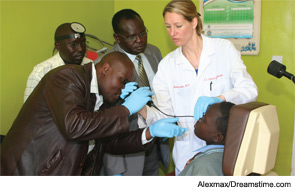
Question: I understand that you have been participating in medical missions since you trained at the department of otolaryngology at the University of California, Davis. Now that you have a busy academic practice, what keeps you going back?
Lisa J. Buckmiller, MD: [Participating in surgical missions] is a wonderful experience. Here in the U.S., there’s a lot of paperwork and bureaucracy. When you go to a third world country where they don’t have access to medical care as we do, you are able to give people an opportunity to have a repair with a very visual impact.
World Medical Missions was the first mission organization I joined when I was a resident, and I have been going on missions with them since 1998. I’ve now been back to the same site in Kenya 11 or 12 times, where we do cleft lip and palate work. I’ve also been to China and Guatemala, and every place has different beliefs associated with medical problems. But in Kenya, people look down on those with physical deformities, as if they are being punished for some reason. It is difficult for the whole family to live with this condition. So you’re really affecting the entire family when you’re able to fix something like that.
Dr. Buckmiller is associate professor in the department of otolaryngology, University of Arkansas for Medical Sciences, and director, Vascular Anomalies Center of Excellence and Cleft Lip and Palate Team at the Arkansas Children’s Hospital in Little Rock.
Q: Are there times, due perhaps to incomplete screening procedures, lack of adequate resources or appropriate follow-up care, when you must tell patients and their families—who might have traveled hundreds of miles to see you—that the surgery they want cannot be safely done?
K. Christopher McMains, MD: I have done surgical trips to Peru, Nicaragua and Iraq, in association with non-governmental organizations as well as those co-sponsored by the State Department and the in-country Ministry of Health. I do mostly rhinology, which is an equipment-intensive activity in the U.S. Often, you do not have all of those medical devices at your disposal in the host country. You feel the pressure of all eyes looking to you, especially when you also know that you cannot reschedule the surgery for another day. Sometimes you have to say, “Given what we have at our disposal, I cannot in good faith undertake this [procedure].” And that’s both humbling and disappointing to everyone involved. The same is true for a procedure that requires follow-up: Unless there is someone with whom you’ve established a partnership, trust and ability to communicate, it’s best, in my mind, to just not go there surgically.
Dr. McMains, MD, is clinical associate professor at the University of Texas Health Science Center in San Antonio, and chief of otolaryngology at South Texas Veterans Health Care System.
Q: How do you keep from feeling overwhelmed by the need for your help in these countries?
Susan R. Cordes, MD: There is so much need when you go on a surgical trip. You always feel good about the patients you’ve taken care of, but you also feel bad about the ones that you don’t. I’ve now traveled to Kenya six times, as part of AMPATH, a reciprocal partnership between North American academic centers led by Indiana University, working in concert with the Moi Teaching and Referral Hospital in Eldoret, Kenya. Although the AMPATH program has been in existence since 1989, I was the first ENT to go.
We have established a relationship with the otolaryngologists there to build up their department and have a more lasting impact. For me, that is very professionally rewarding, and a lot easier for me mentally to be able to look at the long-range picture. We work side by side with the Kenyan otolaryngologists; we raise money to bring them here for additional training; and we let them guide us about the areas they want to work on. For example, for one visit they wanted to work on sinuses. So we brought equipment, they recruited patients and we left the equipment there. More importantly, we left them with the training to use it. What keeps me going is thinking that if we keep this momentum going, we will get to the point where we can narrow down the number of cases they need us to do.
Dr. Cordes is clinical associate professor at Indiana University School of Medicine in Indianapolis.
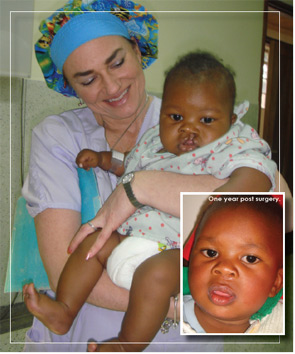
Q: You often do several cases in one day, for many days in a row. This must make for some long days. How do you deal with fatigue?
Lisa J. Molin, MD: The jet lag can be really hard. Fatigue and sleep deprivation are sometimes worse than [what we went through] in residency. Depending on the site, we may have been up for 24 hours when we arrive in the host country. Many times, the hosts feel obliged to wine and dine us. It is their way of showing their gratitude and hospitality, but our surgical team has to get up at 5 a.m. the next morning to do cleft palate and lip repairs.
I’ve worked with Medical Missions for Children in India, Peru, West Africa and the Philippines. Now that I am team leader for our group, returning each year to Angeles City, in the Philippines, we try to rest the first night or two and spend the remaining time with our local hosts. We have a team of 14 people, and we don’t want them operating on only four hours of sleep! We have a great team spirit with our sponsors, the ‘Batch of ’83,’ and they have made our stay and mission to Angeles City very productive.
Dr. Molin is with Ear, Nose and Throat Specialists, Inc., in San Luis Obispo and Pismo Beach, Calif.
Q: Are there factors that foster better outcomes for patients? How do you assess whether the sponsoring organization has addressed those factors?
Dr. McMains: There is great value to making consistent trips to the same location so that you build longstanding relationships, trust and communication. Without this structure in place, I would not schedule a trip. If you are considering involvement with an organization, you can ask them, “What relationships do you have with surgeons in the host country? How is that relationship developed and handled?”
Q: Many otolaryngologists express satisfaction when they have the ability to train their colleagues at the host site, feeling as if they’re closer to the goal of increasing the sustainability of treatments. Do you agree?
Dr. Buckmiller: I have mixed feelings about surgical training [in the host country]. Of course you want a country to be self-sufficient in the way it cares for different types of problems. The unfortunate thing is that cleft surgery is such a complex and precise group of procedures. I have completed eight years of training to be able to do these with the same standard of care. I sometimes hesitate to show someone how to do it and then have them do a very bad job at it the rest of the time. If there is a situation where that group of local people can continue training over long periods of time so that they become proficient, then I’m all for it.
Q: Should trainees be included on surgical missions?
Craig W. Senders, MD, FACS: I have participated in more than 30 missions, and we usually take residents with us. Of course they should be carefully supervised; you have senior surgeons working with them just as you would here in the U.S. Trainees aren’t as fast as experienced surgeons, so cases do take longer. The question is, is that worth doing when you have such a volume of cases you’re trying to handle? It does cost something, but you’re investing in a person who may ‘get the bug’ and go on other trips. For example, Lisa Buckmiller went with us when she trained here at UC Davis. Now, look at how many other people she has gone on to help. We created the seed, and she germinated that seed into a tree.
Dr. Senders is professor and director of the cleft and craniofacial program in the department of otolaryngology at the University of California Davis Health System in Sacramento, Calif.
Q: How do you approach the issues of informed consent in a developing country?
Mark E. Boston, MD, FAAP: Here in the United States, only a minority of patients will say, “Okay, doctor, just do whatever you think you should do.” In other countries, the perception of physicians and health care are very different. Many patients understand only that they’re sick and that they could be better with surgery. They have no idea what I am telling them. As a surgeon, you don’t like to get “talked into” doing surgery, but there are a few cases where not operating would be worse than operating, so we will proceed, with the best understanding of the patient. You have to be very thorough in your explanations and make sure that the information is well translated and understood by the patient and the family.
Dr. Boston is a lieutenant colonel with the U.S. Air Force, a surgical services consultant and chief of the provision of medical care for the Air Force Medical Operations Agency, based at Lackland Air Force Base in San Antonio, Texas.





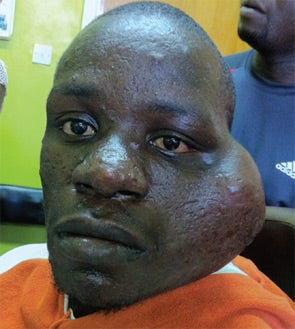
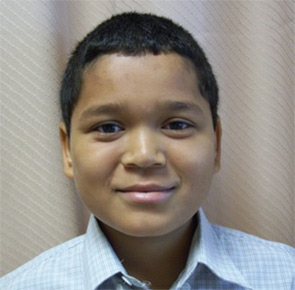
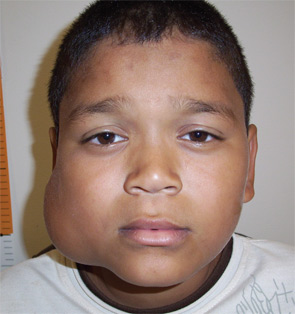
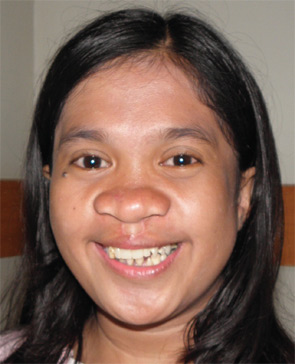


Leave a Reply